Restoration Focuses
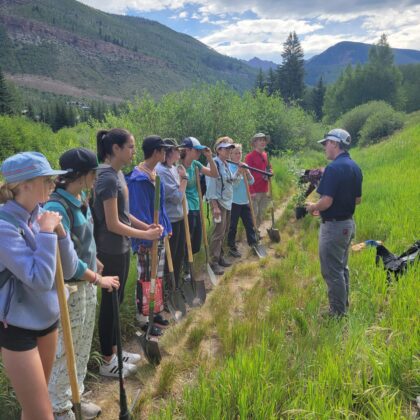
Collaboration
Climate change, population growth, urbanization, resource and recreational overuse and more lead to complicated issues within our local waterways and beyond. To identify and mitigate these concerns, we collaborate with local municipalities, businesses, state and federal agencies, land management representatives, other nonprofits and local community members. Some of the efforts and group we regularly collaborate with are:
Upper Colorado Wild & Scenic Alternative Management Plan
Eagle County Wildfire Collaborative
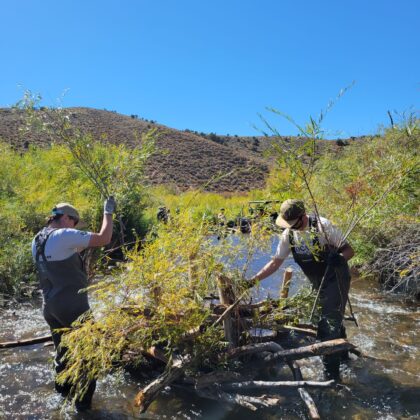
Habitat Improvement
The Eagle River watershed is home to numerous trout species, including cutthroat, which have access to only 1% of their native range. Due to competition from non-native fish, such as brown, rainbow and brook trout, as well as rising water temperatures, caused by climate change and reduced stream flows, the health of these trout is threatened in many areas of our rivers and streams. Additionally, more than 80% of Colorado’s wildlife species rely on riparian habitats at some point in their life cycles. Many of our restoration efforts focus on improving habitat and ecosystem health, including projects involving high alpine streams, where non-native trout access is blocked.
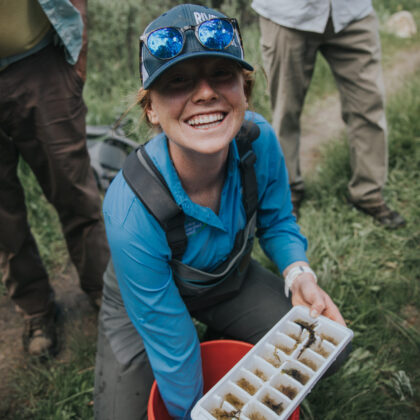
Stormwater Mitigation
Do you know where rain goes after it falls onto pavement and roofs? Much of it flows down into storm drains, which lead to the river. Often, chemicals, trash and other waste is carried directly into our rivers and streams through these storm drains. Our stormwater mitigation efforts include improved infrastructure, such as in-ground vaults, bioswales and rain gardens, or the creation of barriers, such as healthy, native riparian zones, where water can be filtered by plants and soils before flowing into the river, thus protecting water quality and habitat for wildlife, such as fish, bugs and mammals, that depend on the river.
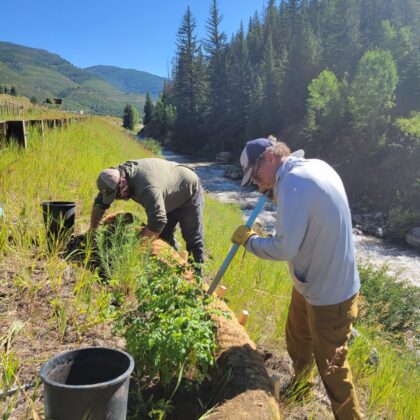
Revegetation
Damaged riparian habitats, whether through erosion, human-caused trampling, flooding or forest fire, can lead to a variety of river health concerns. We improve these damaged areas by laying native seed, planting native shrubs and trees and protecting fragile environments with signage, trail closures and erosion control methods.
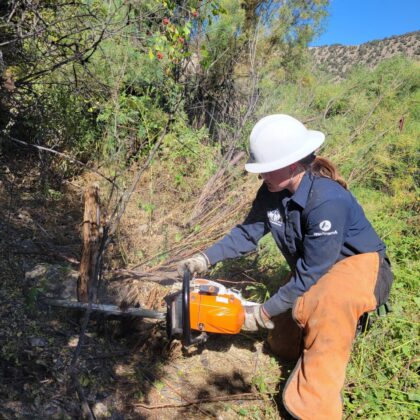
Noxious Weed Removal
Noxious weeds harm our environment in many ways, from overtaking native plant species, damaging the soil chemistry and composition and harming wildlife with toxins and habitat loss, to absorbing massive amounts of water. Removing noxious plants, such as tamarisk, Russian olive and many types of thistles, protects the watershed and water quantity of our rivers and streams.
Check out our noxious weeds page to access resources and to learn more about the programs and projects we are doing to tackle weeds along our rivers and streams.
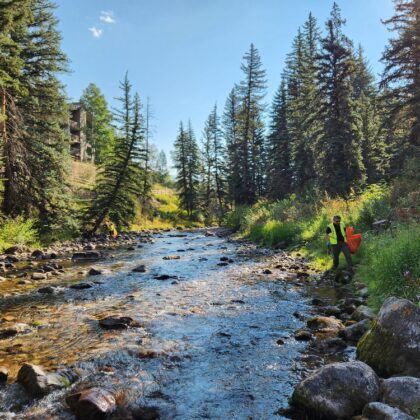
Community Cleanups
Trash accumulates throughout our landscape and removing it before it can enter our streams and rivers helps ensure clean water for all that depend on it, people and wildlife! Through our two longest running events, the Community Pride Highway Cleanup and Eagle River Cleanup, hundreds of people come together every year to remove thousands of pounds of trash from our roadways and river banks.
Check out our events page for upcoming cleanups and please email cleanup@eagleriverco.org for more details.
